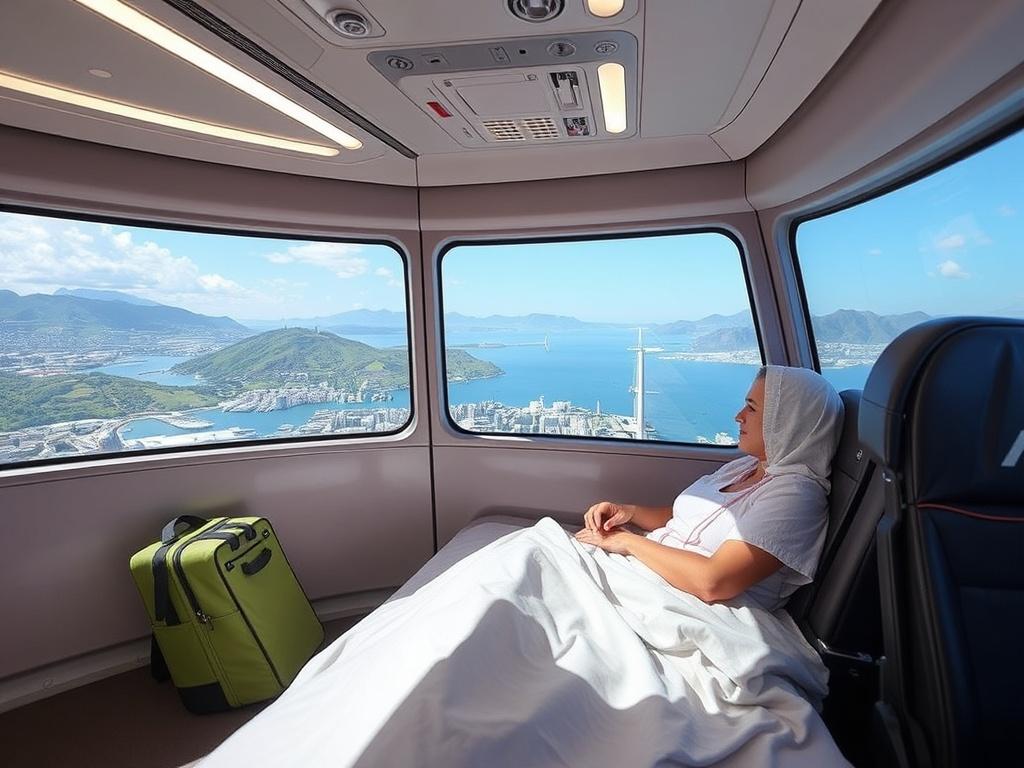Reisekrankenversicherung — the word itself sounds like a lesson in careful planning. If you are planning a trip, whether it’s a weekend getaway to a neighboring country or a months-long adventure on the other side of the globe, understanding travel health insurance is one of the smartest moves you can make. This article will guide you step by step through what Reisekrankenversicherung means, why it matters, and exactly what to look for when choosing a policy so you can travel with confidence.
Throughout this piece I’ll speak plainly and personally, sharing practical tips and real-world scenarios to help you spot the fine print and avoid surprises. Think of this as a travel companion that explains the complicated bits of health coverage in plain English, highlights common pitfalls, and gives you checklists and quick-reference tables you can use when shopping for or comparing plans.
What is Reisekrankenversicherung and why is it important?
Reisekrankenversicherung is German for travel health insurance — a policy that helps cover the costs of medical treatment, emergency care, and sometimes repatriation (bringing you back home) when you fall ill or get injured during a trip. Many travellers think their regular health insurance or credit card benefits are sufficient, but gaps are common and can be expensive.
Imagine you need emergency surgery abroad. Hospital bills, ambulance fees, and medical evacuation back home can run into tens of thousands of euros or dollars. A suitable Reisekrankenversicherung policy can protect you from such catastrophic costs and take care of administrative hassles so you can focus on recovery.
Beyond the money, travel health insurance often includes additional services like 24/7 medical hotlines, assistance with local language or hospital navigation, and help with arranging transportation or accommodations. These non-financial benefits can be as valuable as the policy limit when you are sick in a foreign country.
Who needs travel health insurance?
The short answer is: most travelers. But the specific need depends on your destination, trip length, nationality, and existing coverages. Let’s break it down.
If you are traveling within the European Union and have a European Health Insurance Card (EHIC) or its successor like the UK’s GHIC, you will receive state-provided medical treatment at reduced cost or sometimes free. However, EHIC/GHIC does not cover private medical care, repatriation, or non-emergency costs — so Reisekrankenversicherung is still useful for those gaps. For travel outside the EU, the EHIC/GHIC is generally not valid, and standard domestic health insurance may not cover treatment at all.
Travelers to the United States, Canada, Australia, and many popular long-haul destinations usually need Reisekrankenversicherung because local healthcare costs are much higher than in many countries and local public insurance systems often don’t apply to foreigners. Backpackers and long-term travelers should consider policies tailored to multi-month coverage or annual multi-trip plans. Business travelers should check whether their employer’s policy covers international medical needs, and families should consider plans that include vetting pediatric care if traveling with children.
Special situations that call for extra attention
Pregnancy: Many travel insurance plans limit coverage for pregnancy and childbirth, especially for non-emergency prenatal care. If you are pregnant, check terms carefully and consider policies that explicitly include pregnancy-related emergencies within a safe gestational window.
Pre-existing conditions: If you have chronic illnesses or ongoing medical needs, you must disclose these when buying a plan. Some Reisekrankenversicherung policies offer cover for stable pre-existing conditions if declared in advance, while others exclude them entirely.
Adventure travel: Activities such as skiing, scuba diving, rock climbing, and organized off-road trips may be excluded under standard travel health insurance. Look for policies that list the sports and activities covered, and consider paying extra for adventurous sports add-ons if you plan high-risk activities.
Core components of a Reisekrankenversicherung policy
Not all travel health insurance policies are created equal. When evaluating any plan, check these essential components carefully:
- Medical expense coverage — the maximum amount the insurer will pay for medical bills.
- Emergency medical evacuation — transport to the nearest appropriate medical facility or back home if needed.
- Repatriation of remains — if the unthinkable happens, coverage for bringing a deceased traveler back home.
- 24/7 assistance services — a hotline to help you find local doctors, arrange evacuations, or get translation assistance.
- Prescription medications — coverage for medications you need while traveling.
- Dental emergencies — coverage for unexpected dental pain or trauma.
- Trip interruption due to medical reasons — compensation for extra travel or accommodation if a medical event forces itinerary changes.
Each of these components can have limits, sub-limits, and exclusions. A policy with a very high medical expense ceiling but no evacuation coverage may still leave you in trouble. Prioritize the elements most relevant to your trip and personal health situation.
Understanding policy limits and sub-limits
Insurers state a maximum payout for medical expenses (for example, €1,000,000). That sounds reassuring until you notice sub-limits: a smaller cap for certain items like evacuation (€50,000), dental injuries (€500), or COVID-19 treatment (€10,000). These sub-limits can turn a seemingly generous limit into inadequate protection for the single most expensive component of many travel cases: medical evacuation.
Ask insurers for a clear, itemized breakdown of limits and sub-limits. When in doubt, choose higher limits for evacuation and hospital care if you’re traveling far from home or to remote areas where getting to an equipped medical center is costly.
Common exclusions you must watch for
Reading exclusions is boring but critical. Many claims are denied because travellers assume situations are covered when they are not. Here are common exclusions to flag:
- Deliberate self-harm or injuries sustained while committing a crime.
- Pre-existing medical conditions that were not declared or not covered by that policy.
- High-risk activities and extreme sports without specific coverage.
- Events related to alcohol or drug intoxication.
- Routine check-ups or treatment that can reasonably wait until you return home.
- Travel to destinations the insurer classifies as “high risk” or are under travel advisories.
Policies also often exclude illnesses contracted after ignoring official travel warnings. If your chosen destination is under a governmental “do not travel” notice, your insurer might deny coverage. Always check the insurer’s policy regarding travel advisories before departing.
Pre-existing conditions and medical screening
If you have diabetes, heart disease, asthma, or other chronic conditions, do not assume automatic coverage. Many policies require you to complete a medical questionnaire or obtain a medical screening. Some insurers will offer coverage for pre-existing conditions at a higher premium or with a waiting period; others will exclude them outright.
To improve the odds of obtaining coverage for a pre-existing condition, gather documentation: recent medical reports, medication lists, and a summary from your treating physician. Presenting clinical stability (no recent hospitalizations, stable medication dosing, controlled symptoms) makes it easier to negotiate coverage or get a favorable premium.
Duration and timing: single-trip vs annual multi-trip
Choose your policy duration based on the type of travel. Short vacations often call for single-trip Reisekrankenversicherung. If you travel multiple times a year, an annual multi-trip policy can save money and provide continuous coverage. However, annual plans commonly have limits on the maximum duration per trip (for example, 30, 60, or 90 days).
Long-term travelers like digital nomads or expatriates should look into specialized long-stay travel health insurance or international health insurance plans, which function more like comprehensive overseas health policies and may include routine care and mental health coverage. These plans are typically more expensive but offer broader services and continuity of care.
Deductibles and co-payments
Policies might include a deductible (an amount you must pay before the insurer pays) or co-payment (a percentage you pay for each claim). A higher deductible lowers your premium but increases your out-of-pocket risk. Evaluate how much you’re willing to pay in a worst-case scenario.
For many travelers, a moderate deductible combined with high coverage limits for acute medical events and evacuation hits the sweet spot. If you rarely need medical care and want to save on premiums, a higher deductible may be reasonable — but only if you can afford it in an emergency.
How much coverage do you actually need?

There’s no single correct number, but here are useful benchmarks:
- European travel: minimum €30,000–€50,000 medical coverage is often sufficient for basic emergencies, but check destination specifics.
- Travel to the US or Canada: aim for at least €100,000 to €300,000 due to high healthcare costs.
- Remote or expedition travel: prioritize evacuation and medical transport coverage — consider policies with €250,000 or more for evacuation alone.
Remember: higher limits carry higher premiums, but the extra cost is small compared to an uncovered emergency. Focus on the components most likely to be costly: hospital stays, surgery, intensive care, and medevac.
Policy examples and typical price ranges
Premiums vary by age, trip length, destination, activities, and pre-existing conditions. For a healthy 30-year-old on a two-week European holiday, a basic Reisekrankenversicherung might cost €10–€30. For the same traveler visiting the US, expect €30–€100 depending on limits. Long-term travelers or travelers over 65 often pay several hundred euros for comprehensive plans.
These are ballpark figures. Always get several quotes and compare the coverages rather than the sticker price alone.
How to compare policies — a practical checklist
When comparing offers, use a checklist to avoid being misled by marketing language. Here’s a compact, practical checklist you can use while comparing policy summaries or speaking with agents:
- What is the maximum medical expense coverage in overall terms and by category?
- Is emergency medical evacuation and repatriation included? What are the limits?
- Does the policy have specific exclusions for activities I plan to do?
- Are pre-existing conditions covered if declared? What are the conditions?
- What are the deductibles and co-payments?
- Does the policy cover COVID-19 treatment and quarantine costs?
- How long is each trip covered for under multi-trip policies?
- What documentation will be required to process a claim?
- Is the policy valid in countries under travel advisories?
- Does the insurer provide 24/7 assistance in your language?
Treat the answers to these questions as the basis for your decision rather than the policy name or brand reputation alone.
Sample comparison table
| Feature | Basic Plan | Standard Plan | Comprehensive Plan |
|---|---|---|---|
| Maximum medical coverage | €50,000 | €200,000 | €1,000,000 |
| Emergency evacuation | Not included | €50,000 | Included, €250,000 |
| Dental emergency | €250 | €750 | €2,000 |
| COVID-19 coverage | Excluded | Included | Included |
| Sports/add-ons | Not covered | Some activities | Wide range with add-ons |
| Deductible | €200 | €100 | €0 |
Buying the right Reisekrankenversicherung: steps and tips
Take a step-by-step approach when buying travel health insurance, and don’t rush through the process. Use the following roadmap to make sure you make a well-informed decision:
- Assess your baseline health coverage at home and understand gaps abroad.
- Decide the key features you need: evacuation, repatriation, pre-existing coverage, sports coverage.
- Collect quotes from multiple reputable insurers and compare the policy wordings, not just summaries.
- Read the exclusions carefully and confirm coverage for any planned adventurous activities or special medical needs.
- Check customer service: is there a 24/7 hotline? Are services available in your language?
- Buy insurance as soon as you pay for non-refundable trip components to get cancellation benefits if available.
Also, buy the policy from an authorized and licensed insurer. If buying online, save the policy documents and contact numbers offline (screenshot and print), because you may need them while travelling in places with limited connectivity.
How and when to file a claim
File claims as soon as possible. Many insurers require original receipts, itemized hospital bills, medical reports, and a completed claim form. Some offer cashless treatment agreements with partner hospitals (the insurer pays the hospital directly), while others reimburse you after you pay out of pocket.
Keep copies of all paperwork, take photos of documents if physical copies are hard to obtain, and get contact details of treating physicians. If you must pay upfront, collect detailed invoices and copies of prescriptions to support your claim. If you have difficulty with language, ask the insurer’s assistance line for help in obtaining documents in an acceptable format.
Real-life examples: what can go wrong and how insurance helped

Real stories underscore why Reisekrankenversicherung is more than a bureaucratic step.
Case 1: A traveler to Southeast Asia developed acute appendicitis and required emergency surgery. Local hospital costs were high, and the nearest hospital with surgical capabilities was two hours away. Evacuation and surgery cost more than €40,000. The travel health insurer arranged a medevac, negotiated hospital payment, and covered nearly all expenses after the deductible.
Case 2: A family vacationer in the United States broke an arm. Without adequate coverage, the out-of-pocket emergency and follow-up visits would have been crippling. The insurer provided a cashless arrangement with the hospital and coordinated follow-up care, saving the family from immediate financial strain.
Case 3: A solo traveler with an unstable heart condition failed to disclose it and was denied a claim when admitted abroad. This underscores the importance of full disclosure. Had they declared the condition, they might have been offered a modified policy or advised on alternative arrangements.
COVID-19, pandemics, and changing rules
The pandemic taught travellers and insurers alike to expect the unexpected. Many policies now include specific clauses about infectious diseases, isolation costs, and quarantine accommodation if you test positive while traveling. However, coverages differ dramatically — some insurers treat COVID-19 like any other illness, while others restrict or exclude pandemic-related claims until policy buy dates post-date certain milestones.
If you are traveling during periods of heightened public health risk, verify whether the policy covers:
- COVID-19 treatment and hospitalization
- Quarantine-related additional accommodation costs
- Trip cancellation/rearrangement due to a positive test
- Medical evacuation for infectious disease
Also, check the insurer’s stance on travel advisories. If your government issues a “do not travel” warning, many insurers deny coverage for trips started after the advisory is in place.
Tips for specific traveler types
Families
Look for family plans that cover children under a combined premium, and ensure pediatric emergencies and routine pediatric medications are included. Pay attention to dental coverage and evacuation for minors — some policies have different rules for children.
Seniors
Insurers often cap coverage or charge steep premiums for travellers over a certain age. Seek insurers specializing in senior travel insurance, consider higher premiums for lower deductibles, and ensure coverage for pre-existing conditions where possible.
Backpackers and long-term travelers
Choose plans designed for multi-month travel, with flexible trip duration and coverage for remote area evacuations. If you plan multiple consecutive trips, check if an annual plan with extended trip limits is more economical and convenient.
Business travelers
Check whether your employer provides supplemental coverage and whether the business policy includes emergency evacuation and liability for work-related incidents abroad.
Questions to ask your insurer — use this checklist
- Is repatriation included and under what conditions?
- Does the policy provide cashless hospital treatment or only reimbursement?
- What documentation is required for a claim?
- Are hazardous activities covered, or can they be added?
- Will the insurer cover emergency dental treatment and prescription replacement?
- How quickly are claims processed, and what support is offered during a claim?
- Does the policy cover non-medical costs due to quarantine, such as hotel stays or extended flights?
Don’t be shy about asking direct, pointed questions. A transparent insurer will give clear answers and provide policy wordings to review. If an insurer or agent dodges questions or provides ambiguous responses, consider it a red flag.
How to keep costs down without risking protection
Cost is always a concern, but cheap policies can be false economies. To manage premiums while keeping meaningful protection:
- Choose a sensible deductible. A moderate deductible reduces premium but keeps emergency protection intact.
- Avoid unnecessary add-ons if you won’t use them; only pay for what you need.
- Buy early for cancellation benefits — some plans include trip cancellation insurance if illness prevents travel.
- Compare annual multi-trip versus single-trip policies if you travel often; annual plans can be cheaper long term.
Ultimately, think of Reisekrankenversicherung as protection for low-probability, high-cost events. Prioritize coverage for those high-cost items like evacuation and hospital stays rather than minor benefits that sound attractive but are unlikely to save you from disaster.
Useful documents to carry while traveling
In an emergency, having the right documentation speeds help and claim processing. Keep both digital and physical copies of the following:
- Insurance certificate and policy number
- 24/7 emergency assistance phone number
- Copy of your passport and visa pages
- List of current medications with dosages and medical conditions
- Contact details for your primary physician
- Emergency contact back home
Store digital copies in a secure cloud folder and carry printed copies separate from the originals. If language is a barrier at your destination, ask your insurer for multilingual support or local partner hospital information before you travel.
Final practical checklist before you leave

Here’s a succinct pre-departure checklist summarizing actions to take to ensure your Reisekrankenversicherung will support you if needed:
- Confirm the policy covers your destination and duration.
- Verify inclusion of emergency evacuation and repatriation.
- Declare pre-existing conditions and get written confirmation of coverage or exclusion.
- Check COVID-19 and quarantine coverage specifics.
- Save insurer’s emergency contact and policy number on your phone and in printed form.
- Ask about cashless treatment options and partner hospitals.
- Purchase insurance as soon as you book non-refundable trip components to activate cancellation benefits.
Conclusion
Reisekrankenversicherung is not just a line item in your travel budget — it’s the safety net that protects you from financial ruin and the logistical nightmare of a medical emergency abroad. Choose a policy after careful comparison of limits, evacuation coverage, exclusions, deductibles, and services like 24/7 assistance. Be honest about pre-existing conditions, clarify exclusions for adventurous activities, and keep copies of policy documents and emergency numbers with you. The right Reisekrankenversicherung gives you peace of mind so that the most important part of your trip — enjoying the journey — can remain front and center.









